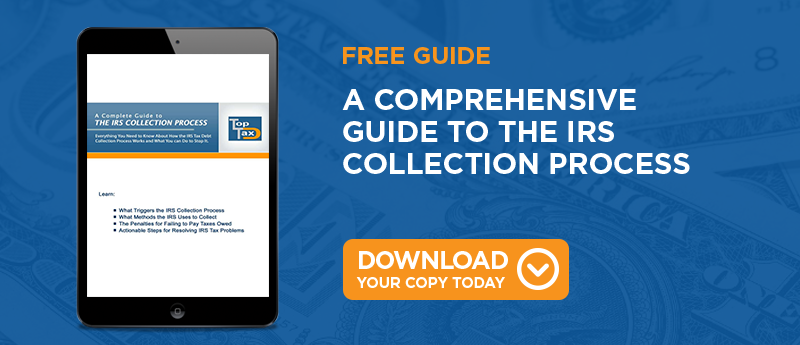
When making ends meet throughout the month is a challenge, it may not be possible for you to add another burden to your budget. However, when the IRS sends you a letter and requests regular payments for your outstanding tax debt, you cannot legally and financially afford to ignore this IRS collection attempt.
Rather than avoid sending in payments or taking away from your household bills to pay the IRS the amount it requests, you may be able to file for financial hardship and gain a temporary reprieve from this obligation. When you want to file for financial hardship, you should understand the process that the IRS requires from people like you who owe the government a tax debt.
Fill out the Necessary IRS Form
You can begin the process of filing for financial hardship by filling out the appropriate forms. The IRS forms you will need to complete can be found on the IRS website. If you are filing for a personal obligation, you will be required to complete and send in IRS Form 433-A. If you are making this request for a business tax debt, you will need to complete IRS Form 433-B.
The information requested on this form is relatively straightforward. You must provide details regarding your identity, finances and household makeup. Among the personal identity details needed, you must provide:
- Your Social Security number and those of others in your home
- Names of your dependents
- Your phone number and address
- What kind of house you live in, like a single-family home, apartment, or manufactured home, among others
Along with providing details about you, your family, and your home, you must also give information regarding your employment. The IRS will request through this form details like:
- Your employer's name
- Your employer's address and phone number
- Copies of your paycheck stubs
- Length of your employment
- Your title or duties at work
This employment information will give the IRS a basis on which to base its decision on whether or not you qualify for a financial hardship reprieve. However, to make as informed decision as possible, the government will also ask that you include details like the name of your bank, what kind of bank accounts you have, what other income you have at your disposal (including alimony, child support, pensions and other monthly income), what legal proceedings you are involved in right now, and what expenses you pay each month. In fact, the IRS will request copies of your monthly bills for:
- Utilities
- Mortgage or rent
- Medical bills
- Transportation costs
- Food
- Personal expenses
You can mail in copies of all of these monthly obligations with your IRS form or submit them to your IRS agent if you have one assigned to your case. All of this information could help the IRS determine that you cannot satisfactorily pay on your tax debt each month and that in doing so, you and your family would experience undue financial hardships.
Provide Your Last Return
This process cannot proceed without a copy of your last tax return. As you submit this other paperwork, you should also provide the government with a copy of your last return. Ideally, it should from the previous tax year, as you may be ineligible for this reprieve if you have missing returns. It is recommended that you provide copies rather than the originals so that you have those on hand if needed in the future.
Hire a Professional Tax Adviser
The IRS does not grant reprieves because of financial hardship often. In fact, it can be very difficult to persuade the agency that you cannot pay on your debt because of your restricted financial means. As such, the IRS often advises people in your situation to hire a tax professional to guide you through this process.
Indeed, this process requires utmost care to details to ensure that your argument is presented successfully to the government. When you hire a tax professional, you can be guided through this process and told what documentation to provide in order to bolster your case.
You may not be sure how many paychecks stubs the IRS needs, for example, to prove that you do not make enough money to make payments on a regular basis. Your tax professional can give you counsel about what documentation could help the IRS render a decision in your favor.
Many people are not aware that the IRS is willing to grant reprieves based on their financial circumstances. When you cannot pay your tax debt and want to pursue this avenue of relief, you may wonder what you need to do to see the process through successfully. You can file for financial hardship and possibly be granted a reprieve from this obligation, even if temporarily, by following these steps and by hiring a tax professional to guide you through the process.




